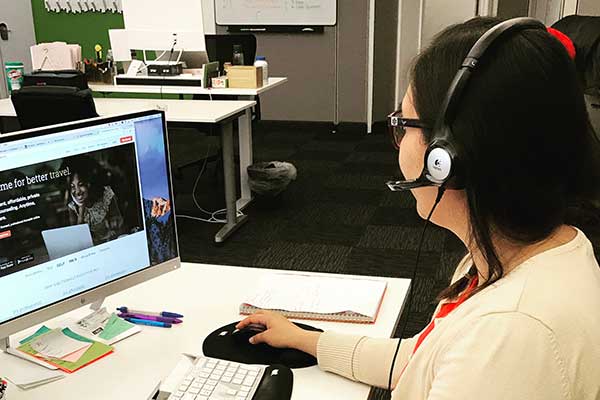If you’re exploring career options and have an interest in mental health, you might be wondering what’s out there in terms of career options. Maybe, you’re preparing to enter college and are starting to make plans for the future, or perhaps, you have completed an undergraduate degree and are looking into long-term career options.
Mental Health Careers
The work options in the mental health field are nearly endless. While they all require varying levels of education and different types of training, they’re all incredibly valuable. Here are some common mental health careers that you may consider:
- Mental health therapist or counselor
There are a wide range of things that a licensed professional counselor or therapist can do. Therapists and counselors can work remotely, in private practice settings, community centers, schools, hospitals, and more. They may conduct group therapy, family therapy, individual therapy, or couple’s therapy, and the modalities one may use as a therapist or counselor are vast. For example, art therapy will look quite a bit different from EMDR. As a therapist or counselor, you can also work with various populations and groups, such as children, teens, adults, people with specific conditions or concerns, and more.
- Social worker or caseworker
Social workers work in a variety of settings. Depending on their role, what a social worker does may look very different from professional to professional. Social workers or caseworkers often attend to or provide initial care during a crisis, refer clients to resources, work with a client to help them find treatment or develop a plan to meet their goals and needs, advocate for clients, follow up with clients, and more. Note that some social workers provide talk therapy and have their own practice or work in a community center to provide talk therapy or counseling like a licensed professional therapist or counselor would. As a result, you may come across people with a title such as LCSW (licensed clinical social worker) who offers therapy through a private practice, community center, or online therapy website.
- Psychiatrist
A psychiatrist has the ability to prescribe medication as well as the ability to evaluate for and diagnose mental health conditions or disorders. Much like a counselor, therapist, psychologist, or social worker, they may work in various settings, including community or healthcare centers and more. However, psychiatrists are medical doctors, meaning that you must complete a Doctorate degree to become a psychiatrist. Psychiatrists often collaborate with a person’s therapist or other relevant healthcare providers to help people find the right treatment plan.
- Peer support specialist
Peer specialists are typically individuals who have lived experience similar to those who they’re working with, hence why they’re called peer specialists, peer support specialists, or peer coaches. As a peer support specialist, you may work with those living with substance use disorders, eating disorders, or those facing other similar concerns. This will typically involve special training and preparation, but it does not involve the extensive education that becoming a therapist, psychologist, social worker, counselor, or psychiatrist does.
Other Career Options
Since the world of mental health is so vast, it’s crucial to know that this is not an extensive list by any means. Other potential mental health careers to consider include but are not at all limited to working in an office setting, a research setting, working for a relevant nonprofit, as a social services assistant, a forensic psychologist, a psychiatric nurse, and so on. You may also consider working as an educator or as someone who educates people on mental health topics.
Finding The Right Path
If you’re exploring your career options, one of the best things you can do is get introspective. Look at your strengths and consider the kind of environment you’d like to work in. What kind or schedule do you need at work? How much schooling are you prepared to go through? What makes you feel fulfilled? What job will allow you to maintain a work-life balance and take care of yourself? These are all important questions to ask yourself.
Remember that to become a therapist, counselor, psychologist, or enter any other similar role, you’ll have to complete an internship or several. Internships are an amazing way to gain experience, meet others in the field, obtain future work references, and feel out what you truly enjoy (or don’t enjoy) in the workplace. During an internship, or even a class in school, you might find a new passion or learn something new about yourself and your work preferences. You could find that you really enjoy working with a particular group or modality, or you may find that you prefer a different work environment or position than you initially thought you’d go after post-graduation.
Additionally, remember that it’s okay to pave your own path. Some take years off in between undergraduate and graduate school, where some don’t. Some go after multiple callings in their lifetime, where others stick with one dominant profession. Talk with your guidance counselor or another relevant individual who is there to help you along your educational and professional path when you have a question, and never be afraid to reach out for help when you need it.
Find A Therapist
Going through college or changing careers can be a challenging time. We all need support from time to time, and at the end of the day, anyone can benefit from seeing a therapist or counselor. Whether you’re facing stress related to work, school, interpersonal relationships, or anything else that’s on your mind, seeing a therapist can help. To find a therapist you can ask your doctor for a referral, contact your insurance company, search the web, use an online directory, or sign up for an online therapy platform like BetterHelp. All of the providers on the BetterHelp platform are licensed, and it’s often more affordable than traditional in-person counseling or therapy is without insurance. Regardless of how you find a therapist, you deserve to find quality care, so don’t hesitate to start the process today.

Marie Miguel Biography – Marie Miguel has been a writing and research expert for nearly a decade, covering a variety of health- related topics. Currently, she is contributing to the expansion and growth of a free online mental health resource with BetterHelp.com. With an interest and dedication to addressing stigmas associated with mental health, she continues to specifically target subjects related to anxiety and depression.










